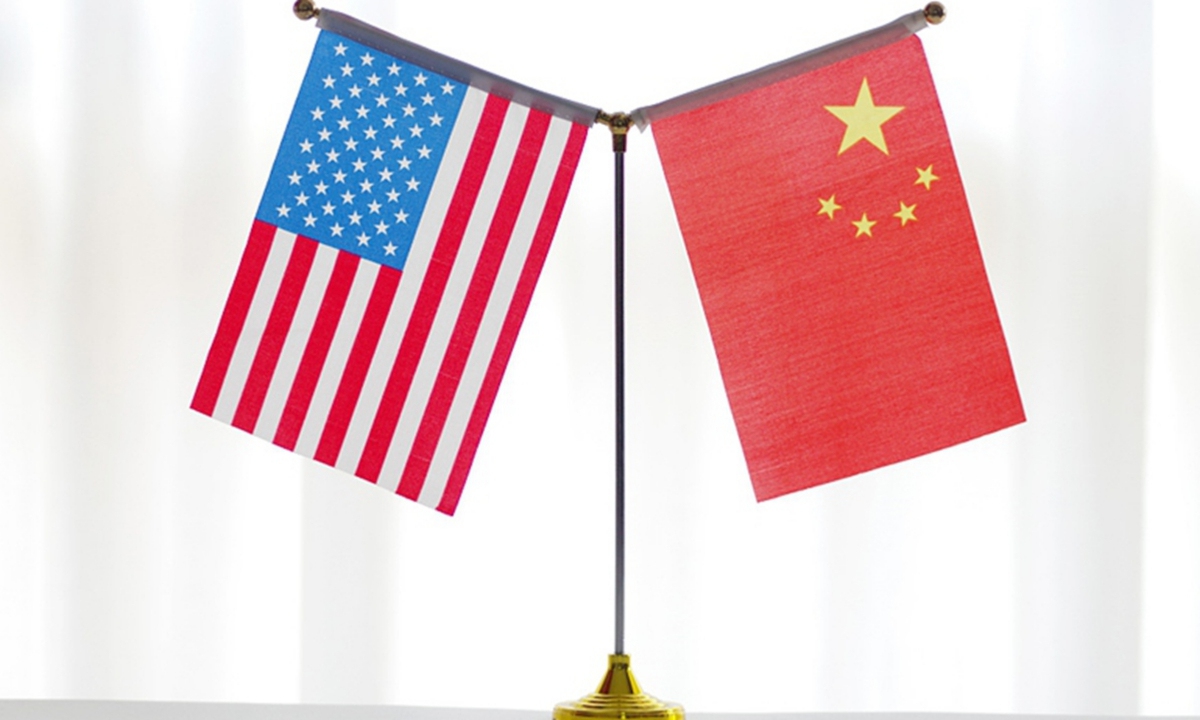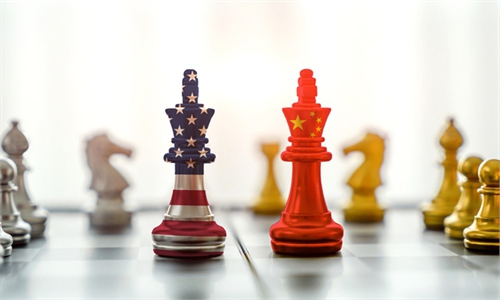US Commerce Department lifts 27 Chinese entities from ‘Unverified List,’ sending positive signal before Raimondo’s visit

China US File Photo:CFP
The US Commerce Department's Bureau of Industry and Security (BIS) on Monday announced that it will lift 27 Chinese entities out of the so-called "Unverified List" which restricts the entities to access exports from the US.
Experts interpret this decision as a positive signal, indicating Washington's interest in engaging with China and finding solutions to existing trade problems between the two countries.
The BIS said that 33 entities will be removed from the Unverified List, 27 of which are based in China with others from Indonesia, Pakistan, Singapore, Turkey, and the United Arab Emirates, according to a statement from the BIS.
"Our removal of 33 parties demonstrates the concrete benefit companies receive when they or a host government cooperates with BIS to complete a successful end-use check," the BIS said.
Chinese Foreign Ministry spokesperson Wang Wenbin said on Tuesday that China welcomes the US move to lift relevant Chinese entities from the list, which indicates that both sides can address specific concerns through communications on the basis of mutual respect. China will continue to firmly uphold the legitimate rights and interests of Chinese companies and institutions, Wang said.
China's Ministry of Commerce (MOFCOM) said on Tuesday that through the joint efforts of China and the US, 27 Chinese entities had been removed from the "Unverified List," which is conducive to normal trade between Chinese and American enterprises and is in line with the common interests of both sides. It also demonstrates that, as long as the principles of frank cooperation and mutual benefit are adhered to, it is entirely possible to find a solution that will be beneficial to enterprises on both sides.
In February, 2022, the US Commerce Department added 33 entities in China to its unverified list (UVL), saying that it was "unable to establish the legitimacy of the entities and how export items would be used by them".
The MOFCOM firmly opposed the US move. "The US has been using export controls as a tool of a political crackdown and economic bullying, constantly taking unilateral measures to crack down on foreign enterprises, institutions and individuals, which has caused damage to normal economic and trade ties between China and the US, harming international trade rules and posing a serious threat to the global industry chain," the MOFCOM said.
In addition to what appears to be a clarification after a year of investigation, it is likely that the US may want to send a positive signal before US Commerce Secretary Gina Raimondo's planned visit late this month that they may engage to solve trade issues, Gao Lingyun, an expert at the Chinese Academy of Social Sciences in Beijing, told the Global Times on Tuesday.
It seems that the US has realized that tough approach may be ineffective in negotiations and can cause significant harm to both. It is possible that the US is considering more appropriate moves to engage with the Chinese side, especially with the upcoming visit of Raimondo, Gao said.
Tian Yun, a Beijing-based economist agreed that the move sends a positive signal.
"It serves as a gesture of goodwill and sets a friendly atmosphere for Raimondo's visit to China," Tian told the Global Times on Tuesday.
Raimondo is scheduled to visit China from August 27 to 30, at the invitation of Chinese Commerce Minister Wang Wentao.
With this trip she will be the fourth senior US official to visit China since June, following US Secretary of State Antony Blinken, US Treasury Secretary Janet Yellen, and US Climate Envoy John Kerry.
"It is hoped that the US would drop measures such as imposing tariffs or restrictions, as it could further escalate the already strained relationship between China and the US. We believe that dialogue is the best approach to resolving differences," Gao said.
Gao said that Raimondo is expected to hold talks with Chinese officials on trade rules, industrial policies and restrictions on high-tech.
Tian said that a main focus of the upcoming talks is to see if there will be breakthroughs in economic and trade relations.
"The results would depend on whether the Biden administration can show sincerity, and it may take several rounds of negotiations to achieve some results," Tian added.

